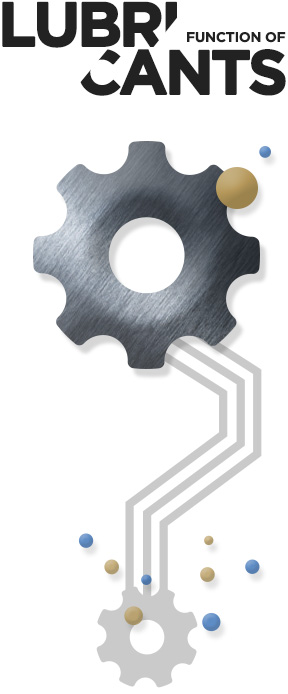BASIC INFORMATION


Selecting the right lubricant to suit each application requires understanding of the role of the lubricant above all. The accurate understanding allows users to select right lubricant products.
1 .Reduced friction
Lubricant forms an oil film on the surface of metals, converting solid friction into liquid friction to reduce friction, which is the most common and essential function of lubricants. Reduced friction prevents heating and abrasion on the friction surface.
2 .Cooling
Friction certainly causes heating on the area and more heat is produced if metals rub against each other. Therefore the heat needs to be absorbed or released; otherwise the system is destroyed or deformed. To prevent it, lubricants are applied. Especially cooling is critical to rolling oils, cutting oils, and lubricating oils used in an internal combustion engine.
3 .Load balancing
Components like gear or bearing are limitedly contacted on a certain line or surface, so load can be increased in a moment, making systems at risk for being destroyed and attached to each other. Therefore the application of lubricant protects systems against increased load by forming an oil film to disperse load in the film.
4 .Cleaning
Long-term use of systems may lead to corrosion or aging, producing foreign substances. In case of using hydraulic oil and gear oil, sediments accumulate such as sludge from deterioration. Especially an internal combustion engine generates too much soot, so that it is likely to shorten the life of systems and make them fail to work properly. Therefore lubricant itself cleans out foreign substances like soap.
5 .Sealing
Sealing is to close the macro-gap between systems. Sealing the space between pistons and cylinders in the internal combustion engines or air compressors blocks the leakage of combustion gas and the inflow of external foreign substances to maintain the defined internal pressure and protect the system. Especially in the hydraulic system, lubricants itself serve to prevent the leakage by creating a hydraulic film.
6 .Rust prevention
Metals produce rust when contacting water and oxygen. However, rust formation can be controlled and the system lifetime is extended if the surface of metals is coated with lubricating film.


